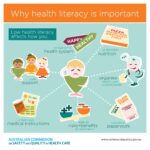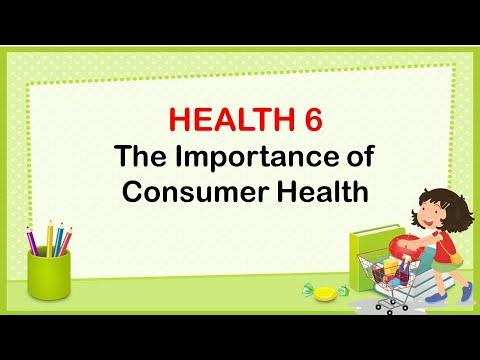
What Is The Importance Of Consumer Health

What Is The Importance Of Consumer Health?
In today’s fast-paced world, consumer health plays a crucial role in shaping not only individual well-being but also influencing societal standards, economic stability, and public safety. Understanding the importance of consumer health helps people make informed decisions about the products and services they use daily. This comprehensive guide will explore why consumer health matters, the benefits of prioritizing it, and practical tips for enhancing your health awareness in everyday life.
Understanding Consumer Health
Consumer health refers to the awareness, attitude, and behavior of individuals regarding their personal health and well-being as consumers. It encompasses knowledge about nutrition, medication, safety standards, healthcare products, and services offered in the marketplace. Essentially, it is about empowering consumers with information that enables safe and healthy choices.
Key Components of Consumer Health
- Health Literacy: The ability to understand medical and health-related information.
- Product Safety Awareness: Recognizing safe and regulated products.
- Informed Decision-Making: Choosing healthcare services and products wisely.
- Preventive Health Practices: Engaging in habits that prevent illness.
Why Is Consumer Health Important?
The significance of consumer health extends far beyond individual choices; it affects community health standards and national healthcare systems.
1. Promotes Personal Well-being
Understanding the fundamentals of consumer health allows individuals to make smarter choices regarding diet, exercise, medication, and daily habits. This, in turn, reduces the risk of chronic illnesses and improves quality of life.
2. Ensures Safety and Reduces Risks
Being informed about product ingredients, possible side effects, and safety certifications protects consumers from harmful substances or fraudulent health claims. This vigilance lowers the chances of accidents or adverse reactions.
3. Encourages Responsible Consumption
A well-informed consumer supports ethical companies, sustainable products, and healthcare services that align with public health standards, contributing to environmental and societal welfare.
4. Reduces Healthcare Costs
When consumers actively engage in preventive health and make wise health choices, the overall demand for emergency and expensive treatments decreases. This reduction helps save money both personally and on a broader healthcare system scale.
5. Empowers Advocacy and Policy Change
Informed consumers can advocate for better regulations, more transparent labeling, and stricter safety laws-driving improvements within industries and governments.
Benefits of Prioritizing Consumer Health
- Improved Longevity: Healthy lifestyle choices promote a longer lifespan.
- Higher Productivity: Good health enhances focus, energy, and work output.
- Better Mental Health: Nutritional and physical well-being positively affect emotional stability.
- Reduced Risk of Disease: Prevention through good habits lowers chronic illness rates.
- Informed Spending: Avoiding unnecessary or harmful products saves money and stress.
Practical Tips to Enhance Consumer Health
Getting started on improving your consumer health is easier than you might think. Here are some practical ways to take control:
- Read Labels Carefully: Check ingredients, expiration dates, and certifications.
- Research Products: Use trusted websites and consumer reports to verify claims.
- Consult Healthcare Professionals: Ask questions before starting new medications or treatments.
- Practice Healthy Shopping: Choose fresh, organic, and minimally processed foods whenever possible.
- Stay Updated: Follow health news and alerts about recalled products or outbreaks.
Case Study: Consumer Health Impact in Action
| Case | Context | Outcome |
|---|---|---|
| Food Label Awareness | Consumers began reading sugar content on beverages | Soft drink companies reduced added sugar; obesity rates declined slightly |
| Medication Education | Patients using apps to track side effects of new drugs | Improved reporting of adverse reactions and safer prescriptions |
| Product Recalls | Online platforms notifying about unsafe cosmetics | Consumers avoided harmful products; industry recalls increased |
First-Hand Experience: Why I Prioritize Consumer Health
As someone who once struggled with chronic allergies, my journey to understanding consumer health began with reading ingredient labels and questioning product safety. Over time, I noticed a significant decrease in allergic reactions just by choosing products with fewer chemicals and trusting verified brands. Prioritizing consumer health empowered me not just to improve my personal well-being, but also to share knowledge with family and friends, fostering a healthier community around me.
Conclusion
The importance of consumer health cannot be overstated in a world filled with countless products and health options. By improving health literacy, making informed decisions, and adopting preventive habits, consumers not only protect themselves but also contribute to the broader public health and economic well-being. Whether you’re a frequent shopper, a patient, or simply interested in improving your health, prioritizing consumer health is a foundational step toward a safer, healthier, and more sustainable future.
Start taking small, informed steps today and experience firsthand the powerful benefits of being a well-educated consumer.






